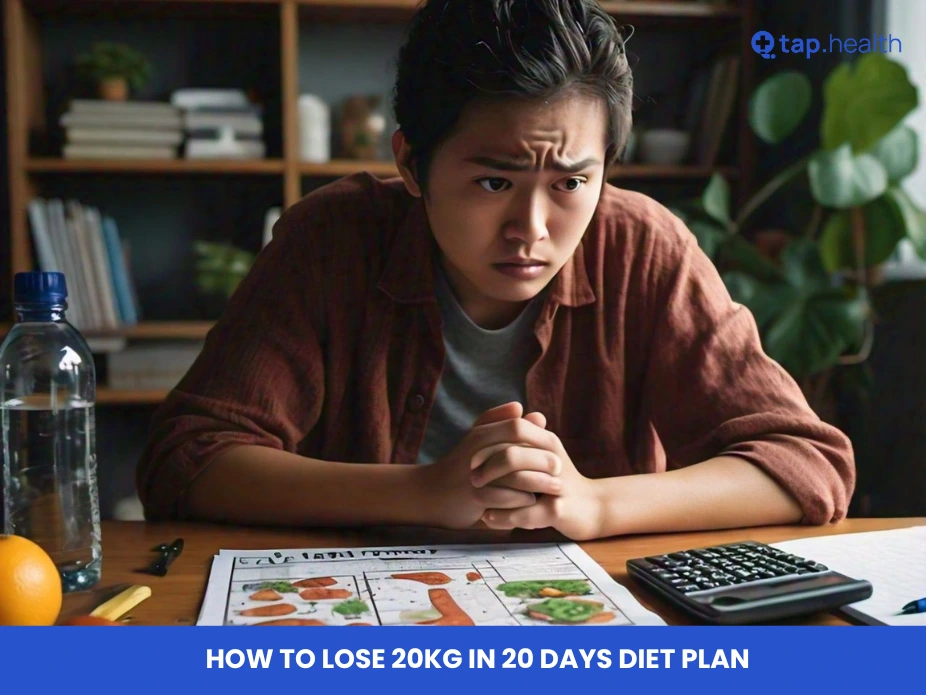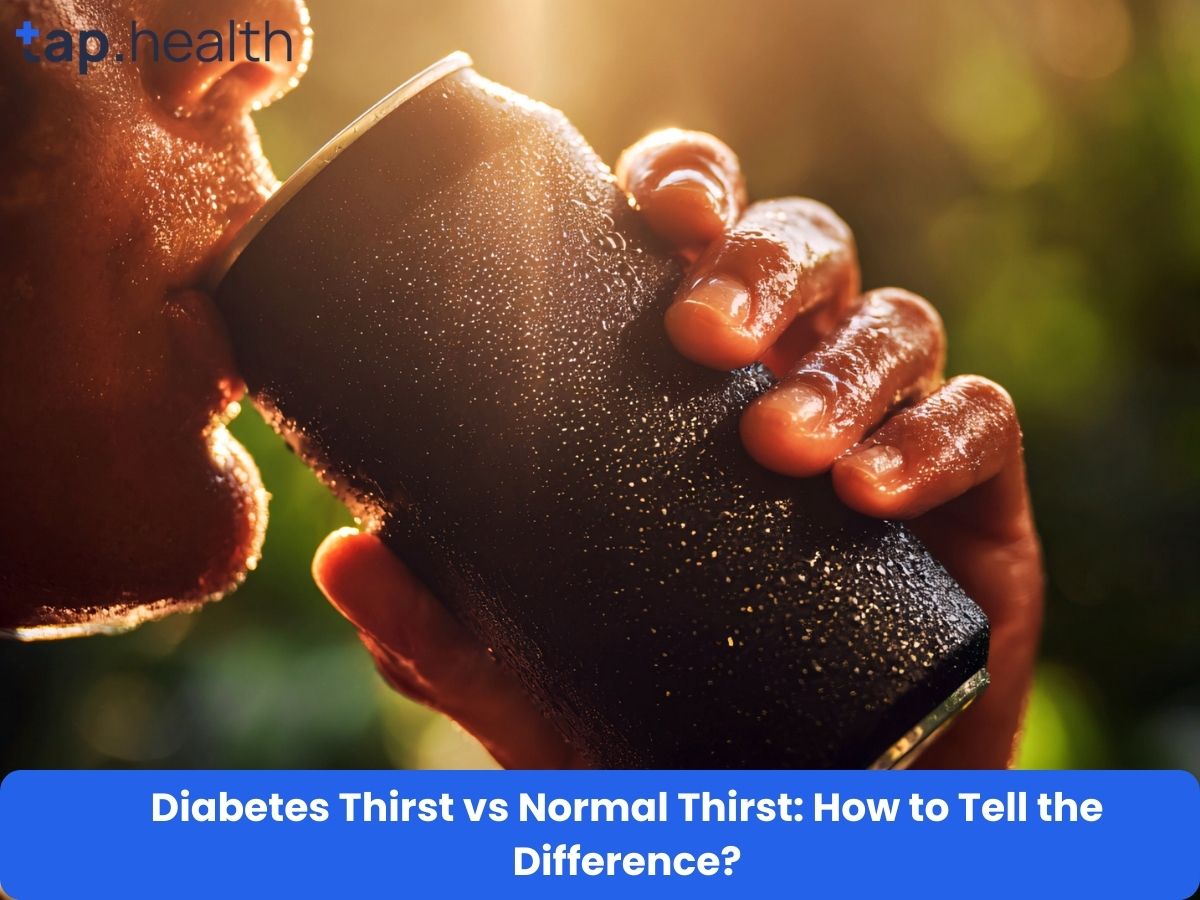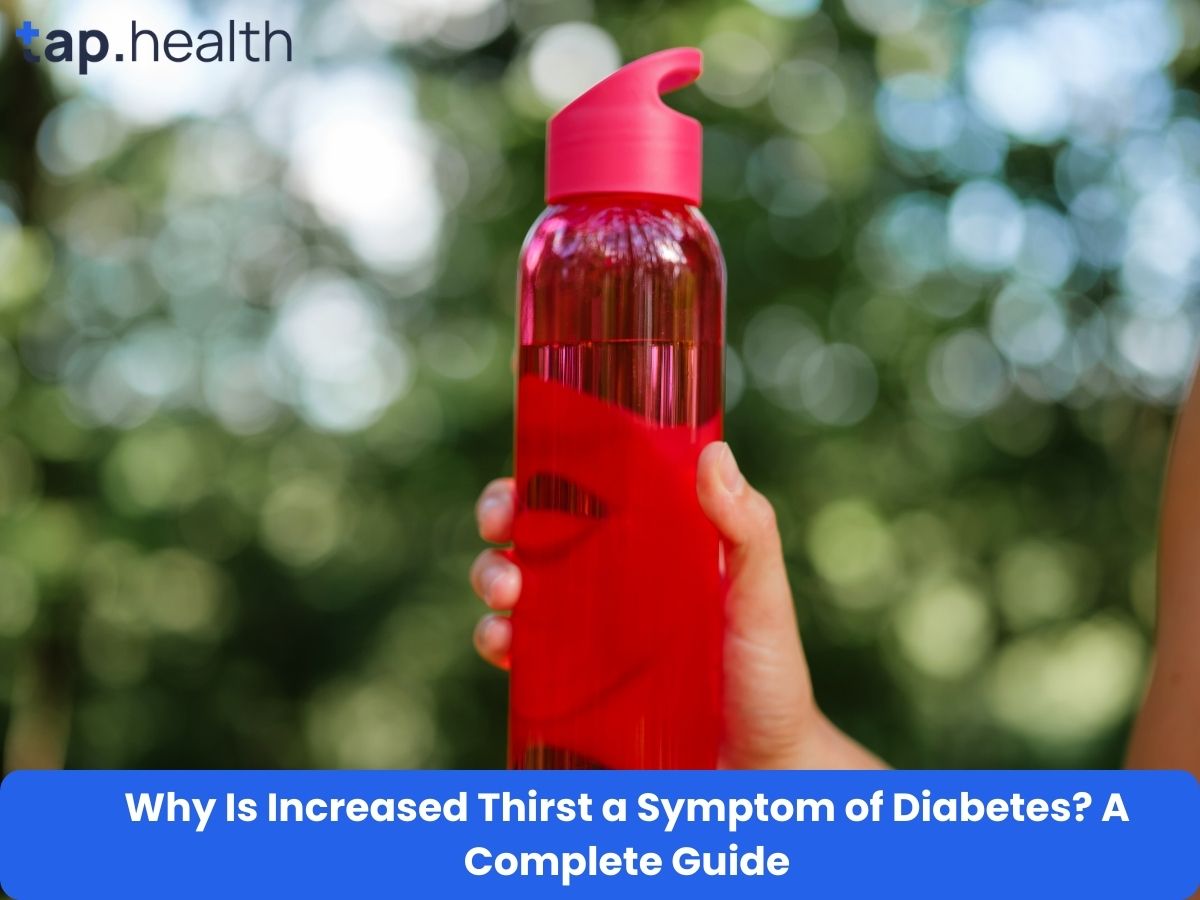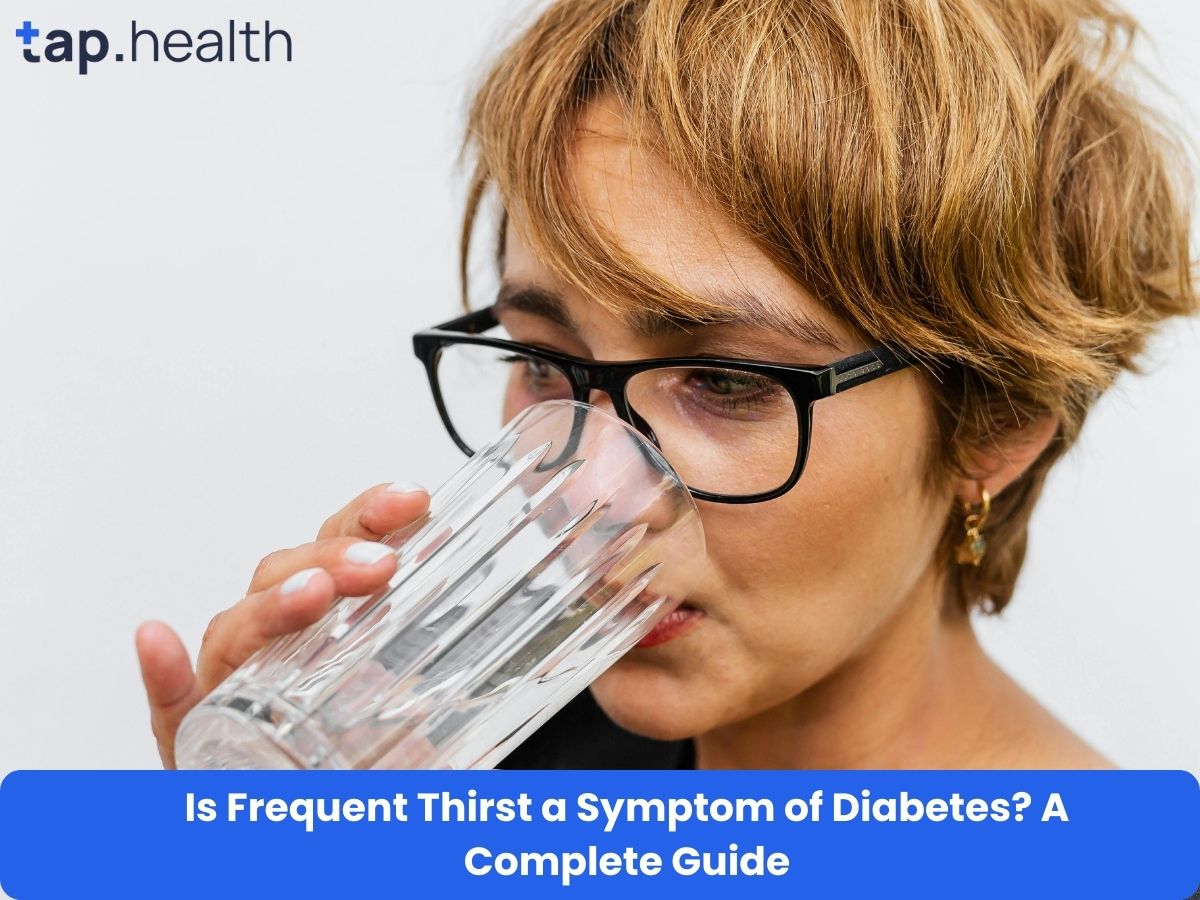We have all been there. You have a wedding in the family, a college reunion, or a beach holiday coming up in exactly three weeks. You try on your favourite outfit, and the zip refuses to close. Panic sets in. You open Google and type: “How to lose 20kg in 20 days?”
You are looking for a miracle. You want a strict plan, a magic potion, or a secret exercise that will melt the fat away instantly.
As a senior health strategist, I need to have a serious, honest conversation with you—just like a family doctor would. I am not here to sell you fake dreams. I am here to explain what is actually possible for your body, how to get the best results safely, and why the “20kg in 20 days” goal might be a dangerous trap.
This guide will cover everything: the maths of weight loss, a strict Indian diet chart for rapid results, and the medical reality of crash dieting.
The Maths: Is 20kg in 20 Days Even Possible?
Let’s use the KISS method (Keep It Simple, Stupid) to look at the numbers.
To lose weight, you must burn more calories than you eat. This is called a Calorie Deficit.
- 1 kg of body fat equals roughly 7,700 calories.
- To lose 20 kg, you need to burn: 20 x 7,700 = 1,54,000 calories.
- You have 20 days to do this.
- Daily Deficit Needed: 1,54,000 ÷ 20 = 7,700 calories per day.
Here is the problem: The average human only burns about 1,800 to 2,500 calories a day just by living and moving. Even if you stopped eating completely (which is fatal), you would only “save” about 2,000 calories. You would still need to burn another 5,000+ calories through exercise every single day.
The Verdict: Losing 20kg of pure fat in 20 days is medically impossible.
However, you can lose a significant amount of weight (a mix of water, glycogen, and fat) quickly. We can target a realistic, aggressive goal of 5kg to 8kg in 20 days, which will make a massive difference in how you look.
The “Crash Diet” Trap: What Happens to Your Body?
If you try to starve yourself to hit this impossible target, your body will fight back. Here is exactly what happens inside you:
1. Metabolic Crash
Your body thinks there is a famine. To keep you alive, it slows down your metabolism (the engine that burns fat). You might eat less, but you will stop losing weight because your body is hoarding every calorie.
2. Muscle Loss
When you don’t eat enough protein, your body eats its own muscles for energy. You might see the scale go down, but you will look “skinny fat” (loose skin, no tone) instead of fit.
3. The Gallstone Risk
Rapid weight loss causes the liver to release extra cholesterol into the bile. This can form stones in your gallbladder, which is incredibly painful and often requires surgery.
4. Hair Loss and Skin Issues
Without vitamins and minerals, your hair will start falling out in clumps about 2-3 months after the diet stops. Your skin will look dull and grey.
Real-Life Scenario
Let’s look at a case study to understand the right vs. wrong way.
The Scenario: Priya, a 28-year-old from Delhi, was getting married in a month. She wanted to lose 15kg. She found a “Liquid Only Diet” online.
The Mistake: For 10 days, Priya only drank lemon water and green juices. She lost 6kg initially (mostly water). But on day 11, she fainted at work. Her blood pressure dropped, and she had severe acidity. She had to be hospitalised and put on a drip.
The Correction: We switched her to a High-Protein, Low-Carb Indian Diet. She ate eggs, paneer, and salads. She drank 4 litres of water.
The Result: By her wedding day, she hadn’t lost 20kg. She lost 7kg of pure bloat and fat. She fit into her lehenga, her skin glowed, and she had the energy to dance. This is the goal.
A Realistic 20-Day Strategy: The “Emergency” Indian Plan
If you want to lose maximum weight safely in 20 days, we need to focus on three things:
- Removing Water Retention: This is the fastest way to drop the first 3-4kg.
- Eliminating Sugar and Starch: This forces your body to burn stored fat.
- Increasing Protein: This keeps your tummy full and protects muscles.
Here is your 20-Day Aggressive (But Safe) Plan.
The Golden Rules
- No Sugar: No sweets, no cola, no sugar in chai.
- No Wheat (Gluten): Stop roti and bread for 20 days. They cause bloating.
- Dinner by 7 PM: Give your body 12-14 hours of fasting overnight.
The Meal Plan (Repeat for 20 Days)
Early Morning (7:00 AM)
- 1 Glass of Warm Water + Half Lemon + 1 tsp Honey (Optional).
- Why: Flushes toxins and wakes up your digestion.
Breakfast (8:30 AM)
- Option A: 2 Boiled Eggs (Whites only) + 5 Almonds (Badam).
- Option B (Veg): 1 Moong Dal Chilla (made with minimal oil) + Mint Chutney.
- Why: High protein stops hunger cravings later in the day.
Mid-Morning (11:00 AM)
- 1 Cup Green Tea (No sugar).
- 1 Bowl of Papaya or Watermelon.
- Why: These fruits are high in water and fibre, helping reduce bloating.
Lunch (1:30 PM)
- 1 large bowl of Salad (Cucumber, Tomato, Carrot).
- 1 bowl of Dal (any lentil, thin consistency).
- 100g Grilled Chicken / Fish OR 100g Paneer Bhurji.
- No Rice, No Roti.
- Why: We are cutting carbs to lower insulin levels, which triggers fat burning.
Evening Snack (5:00 PM)
- 1 cup Black Coffee or Green Tea.
- Small bowl of Roasted Makhana (Fox nuts) or Chana (Chickpeas).
Dinner (7:00 PM) – The Lightest Meal
- 1 large bowl of Clear Soup (Spinach, Tomato, or Chicken broth).
- OR 1 bowl of Sautéed Vegetables (Broccoli, Beans, Capsicum).
- Why: Light dinner ensures you sleep with a flat stomach.
Before Bed (10:00 PM)
- 1 cup warm water with a pinch of Jeera (Cumin) powder.
Expert Contribution
Based on consensus from clinical dietitians and metabolic experts.
Dr. R. Mehta, a leading Endocrinologist, explains the “Water Weight” phenomenon:
“When patients come to me asking how to lose 20kg in 20 days, I tell them about glycogen. Your body stores energy in the liver and muscles as glycogen. For every 1 gram of glycogen, your body stores 3 to 4 grams of water.
When you go on a strict low-carb diet, your body burns through this glycogen first. As the glycogen goes, the water goes with it. You might lose 3kg in the first 3 days! This is motivating, but it is not fat loss. It is water loss. Real fat loss is slow—about 0.5kg to 1kg a week. Be patient and don’t trust the scale blindly.”
Recommendations Grounded in Proven Research and Facts
To accelerate your results safely, add these scientifically proven strategies to your diet plan.
1. Intermittent Fasting (16:8 Method)
Fact: Research shows that restricting your eating window lowers insulin levels effectively. Recommendation: Skip the early morning snack. Eat your breakfast at 10:00 AM and finish dinner by 6:00 PM. This 16-hour fasting window turns your body into a fat-burning machine.
2. High-Intensity Interval Training (HIIT)
Fact: You cannot jog your way to rapid weight loss; it takes too long. HIIT burns more calories in less time and keeps your metabolism high for hours after the workout. Recommendation: Do 20 minutes of HIIT daily.
- 1 minute: Jumping Jacks (Fast).
- 1 minute: Rest.
- Repeat 10 times.
3. The Salt Cut
Fact: Sodium (Salt) holds onto water. One teaspoon of salt can make you hold up to 1.5kg of water weight. Recommendation: Stop adding salt to salads. Minimise pickles (achar) and papads. Eat dinner with very low salt to wake up looking leaner.
4. Sleep to Shrink
Fact: A study in the Annals of Internal Medicine found that dieters who slept 5.5 hours lost less fat and felt hungrier than those who slept 8.5 hours. Lack of sleep raises Cortisol (stress hormone), which makes you store belly fat. Recommendation: Sleep is not lazy; it is part of the diet. Get 8 hours minimum.
Why You Might “Plateau” (Stop Losing Weight)
Around Day 10, you might stop seeing the weight drop. This is normal.
- The Cause: Your body has adjusted to the lower calories.
- The Solution: Do a “Re-feed Meal.” Have one meal with complex carbs (like Sweet Potato or Oatmeal). This signals to your thyroid that you are not starving, and your metabolism speeds up again.
Frequently Asked Questions (FAQs) on How to Lose 20kg in 20 Days
Can I take weight loss pills to speed this up?
No. Most over-the-counter weight loss pills are laxatives (make you poop) or diuretics (make you pee). They dehydrate you and can damage your kidneys. The weight comes back the moment you drink water.
What about the “GM Diet”?
The GM Diet is a popular 7-day crash diet. While it works for short-term weight loss, it causes muscle loss and extreme weakness. The plan above is a balanced version that includes protein, making it safer and more sustainable.
Will drinking hot water melt fat?
No, water temperature does not melt fat. However, drinking warm water helps digestion and prevents constipation, which can make your stomach look flatter.
Can I lose 20kg in 20 days with exercise?
Even if you run a marathon (42km) every day, you only burn about 2,500 calories. You would have to run a marathon daily and not eat to even get close to the math required. It is physically impossible for a normal person.
What happens after the 20 days?
This is the most critical part. If you go back to eating pizzas and sweets on Day 21, you will regain all the weight in 5 days. You must slowly introduce carbs back into your diet (Reverse Dieting) to maintain the weight loss.
Conclusion
Can you lose 20kg in 20 days? Medically, no. Can you lose 5kg to 8kg and look drastically different? Yes.
The number on the scale is just gravity pulling you down. What matters is how you look and feel. By following the high-protein, low-carb, and hydration-focused plan above, you will lose the maximum amount of weight your body can safely handle.
You will walk into your event feeling lighter, sharper, and confident—without fainting on the dance floor.
References
Harvard Health Publishing: Why you should not stop eating to lose weight – Link to Harvard Health
Mayo Clinic: Weight loss: faster is not always better – Link to Mayo Clinic
National Institutes of Health (NIH): Very Low-Calorie Diets – Link to NIH



